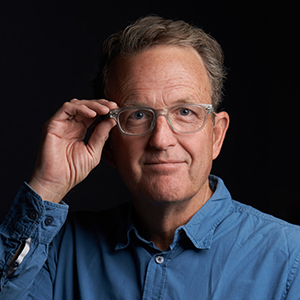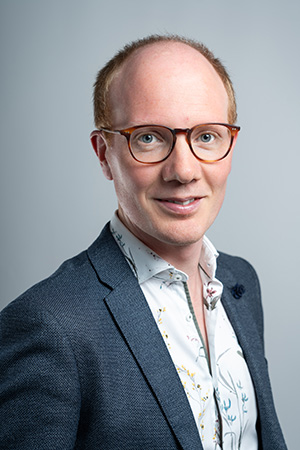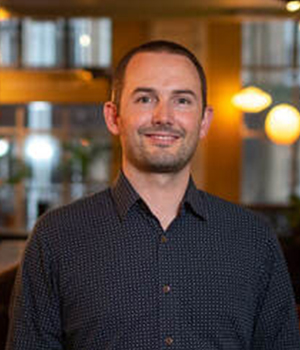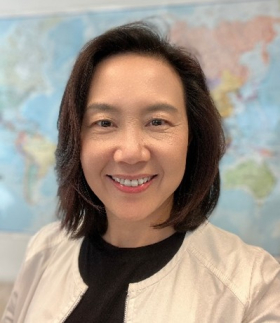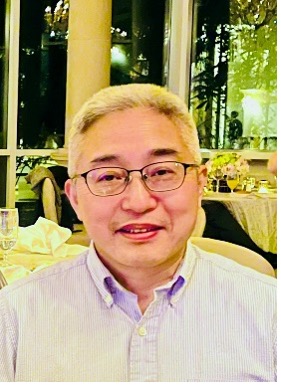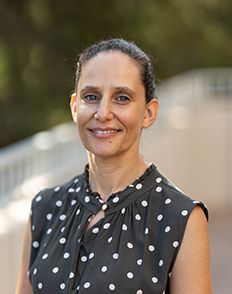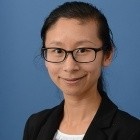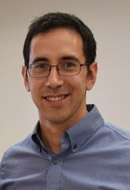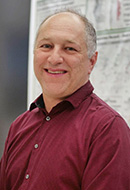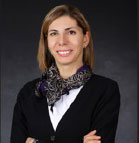UW CEE hosts visitors from around the world, thanks to the Burges Endowed Visiting Professorship program. The program provides financial support that enables visitors from other universities to share their expertise and collaborate on research with faculty and students from UW CEE.
Visitors from other universities are invited to participate if they have a unique skillset and have “demonstrated leadership in addressing issues of civil and environmental engineering within the context of the overall ecosystem, as influenced by human endeavors and interactions.”
How to apply to be a visiting professor
Visiting faculty
| Name/title | Institution | Research conducted | Year |
|---|---|---|---|
| Rhodesworks Design Studio |
Richard Rhodes is a professional sculptor, Master stonemason, and scholar of stonework worldwide. His book, Stone:
Ancient Craft to Modern Mastery (Princeton Architectural Press, June 2025) looks at the last 5000 years of stone
architecture and works to decode the design principles. As the first non-Italian admitted into Siena’s medieval masonic
guild in 726 years (operative branch of the Freemason’s, heirs to the cathedral builders of Europe), he is known
throughout the sculpture and stone community as the “last apprentice” since the guild collapsed in the mid-1990’s. |
2025 | |
| University of Groningen |
Dr. Paul Buijs is an Associate Professor at the University of Groningen whose research centers on understanding how logistics stakeholders are affected by the sustainability transition and how they, in turn, can help achieve sustainability goals. His work spans a broad range of logistics domains—from urban logistics to heavy road freight—and sustainability aspects, from carbon emissions to livability and economic inclusivity. His current studies explore how logistics can adapt to evolving urban spaces, how urban planning can reshape logistics to reduce their footprint in cities, how the decarbonization of road freight can be accelerated, how novel e-commerce delivery and return options affect emissions, and how the transition to green urban logistics can remain equitable for all stakeholders. During his visit to UW, Paul will join the Urban Freight Lab to strengthen research collaborations with the Department of Operations at the University of Groningen. He will also teach a module on the role of urban freight in land use and transport planning, comparing approaches in North America and Europe. |
2025 | |
| University of Auckland |
Liam is a Professor in the Department of Civil & Environmental Engineering at the University of Auckland, New Zealand. He has leadership roles across multiple national research programmes that are advancing the resilience of the built environment to natural hazards. One area of his ongoing research is geotechnical earthquake engineering, with a focus on site characterisation and site response across various spatial scales.During his visit to UW, Liam will be looking to develop his geotechnical earthquake engineering collaborations and explore the wider collaborative opportunities between UW and the wider New Zealand natural hazards research community. This will include discussions on potential synergies with the NHERI RAPID facility. Research funding, exchange opportunities for students and the sharing of data to support ongoing activities will be explored. |
2025 | |
| Georgia Institute of Technology |
Ching-Hua Huang is a Professor and the Turnipseed Family Chair in the School of Civil and Environmental Engineering at Georgia Institute of Technology. Her expertise involves environmental chemistry, contaminants of emerging concern, and water/waste treatment technology. Her research examines the (1) fate of emerging contaminants and disinfection byproducts in water systems; (2) advanced oxidative/reductive processes for water treatment; and (3) resource recovery and separation of critical metals. While at UW, Ching-Hua will engage in collaborative research on contaminant degradation and microbial disinfection by novel UV-related processes. She will also exchange research experiences in contaminant monitoring and critical metal recovery, give research seminars, and meet various research groups and students in CEE. |
2025 | |
| University at Buffalo |
Andrew Whittaker is a SUNY Distinguished Professor in the Department of Civil, Structural and Environmental Engineering at the University at Buffalo, and holds a Faculty Joint Appointment at the Idaho National Laboratory. Whittaker is a registered civil and structural engineer (SE) in the State of California. His undergraduate degree in civil engineering is from the University of Melbourne (1977) and his MS (1985) and PhD (1988) degrees are from the University of California, Berkeley. Andrew Whittaker has contributed to the writing of ASCE standards, and ATC/FEMA guidelines for more than 30 years. He made significant contributions to the first generation of tools for performance-based earthquake engineering (FEMA 273, FEMA 274, FEMA 356, ASCE 41) and led the structural engineering team that developed the second generation of these tools (FEMA P-58). Whittaker has served as Chair of the ASCE Nuclear Standards Committee since 2015. Andrew Whittaker has been recognized in his profession for academic and design-professional contributions to the structural engineering in the United States with the 2016 American Society of Civil Engineers (ASCE) Stephen D. Bechtel Jr. Energy Award, the 2017 ASCE Walter P. Moore Jr. Award, the 2023 ASCE Nathan M. Newmark Medal, and the 2023 ANS Untermeyer & Cisler Reactor Technology Medal. Whittaker is a Distinguished Member of ASCE and a Fellow of the Structural Engineering Institute of ASCE and the American Concrete Institute. Whittaker consults to federal agencies, regulators, consultancies, contractors, reactor developers, energy companies, and utilities in the United States, Canada, United Kingdom, Europe, and Asia, on topics ranging from micro-reactors to large-light water reactors, to underground nuclear waste storage facilities, and other mission-critical structures such as data centers, hospitals, tall buildings, dams, and giant telescopes. |
2025 | |
| City College of New York, CUNY |
Hansong Tang is a Professor of Civil Engineering at the City College of New York, CUNY. His research focuses on fluid mechanics, numerical methods, and computational physics. He studies fluid flows in contexts such as coastal flooding, tidal energy, environmental pollution, material processing, and explosion within water. Additionally, he pursues the development of computational methods, including multiblock simulation and model coupling for multiscale, multiphysics coastal ocean flows, as well as algorithm construction, e.g., to enhance numerical accuracy and capture physics. During the visit, he intends to engage in discussions and explore potential collaborations with UW faculty sharing common or complementary interests/expertise, including in coastal resilience and field observation. He also seeks interdisciplinary collaboration opportunities, such as bridging fluid dynamics and traffic pattern modeling. |
2025 | |
| Technion in Haifa, Israel |
Dr. Adi Radian is an Associate Professor in the Faculty of Civil and Environmental Engineering at the Technion in Haifa, Israel. She leads the Environmental Soil Chemistry Lab, which focuses on unraveling the complex processes that determine the fate of pollutants in the environment and developing novel water and soil remediation technologies. The lab's research integrates adsorption with biogeochemical degradation processes to enhance and design new treatment strategies. It also investigates fundamental chemical and biological interactions at the water-soil interface, colloidal interactions with organic macromolecules, and the surface transformation of pollutants by clays and oxides. During her time at UW, Prof. Radian will collaborate on research related to the adsorption and degradation of recalcitrant chemicals, with a particular focus on PFAS remediation. She will also teach an advanced graduate course on the fate of pollutants in open environments (winter term), deliver research seminars, and engage with various research groups and students in the Department of Civil and Environmental Engineering. |
2025 | |
| University of Buffalo |
Ning is an Associate Professor in the Department of Civil, Structural and Environmental Engineering at the University at Buffalo, the State University of New York. Her research examines the chemical and physical processes involved in engineered water treatment and reuse systems, such as disinfection, disinfection byproducts, and membrane processes. She also studies the sunlight photochemistry of anthropogenic contaminants in natural environments. While at UW, Ning will engage in collaborative research on contaminant degradation relevant to urban waters and impervious surfaces. She will also exchange experiences in engineering design courses, give a research seminar, and meet various research groups and students in CEE. |
2022 | |
| The University of Texas at Austin |
Steve is Professor of Civil, Architectural, and Environmental Engineering at The University of Texas at Austin. His research is in transportation engineering and operations research, specifically focusing on transportation network analysis, routing and equilibrium traffic assignment, and modeling techniques to plan for emerging vehicle technologies. He is also lead author on a new open-access textbook on these topics. While at UW he will collaborate on research topics related to equity impacts of transportation policies, and human factors related to automated vehicles. He will also teach a course on transportation systems, give a research seminar, and meet various research groups and students in CEE. |
2022 | |
| University of Colorado Boulder |
Karl is a Professor of Environmental Engineering and the Mortenson Professor in Sustainable Development at the University of Colorado Boulder. His expertise involves novel water and wastewater treatment systems, including advanced and innovative UV systems for inactivation of pathogens and degradation of organic and other emerging contaminants. He also works in sustainable implementation of water and sanitation technologies globally. While at UW he will collaborate on UV-related research for contaminant degradation, and on sanitation solutions in marginalized communities. He will also teach a series of classes in water reuse, give a research seminar, and meet various research groups and students in CEE. |
2022 | |
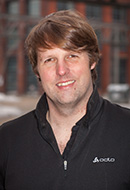 Professor Timo Hartmann |
TU Berlin |
Timo is Professor for Systems Engineering at the TU Berlin. where he is responsible for the teaching program of the Civil Systems Engineering department. The department offers a Masters Program in Civil Systems Engineering teaching students advanced engineering practices, such as generative design, multi-physics simulation, life-cycle and circular product assessment, and data analytics. At the same time, Timo manages the research of the department with a focus on Circular Economy for the Built Environment and Complex Infrastructure System Management. Timo is deputy editor of Construction, Engineering, and Architectural Management and chief editor of Advanced Engineering Informatics. During his visit at UW, Timo will explore the organizational ramifications that a change of engineering work towards a digital practice will cause, with a particular focus on how the ongoing digitization will affect minorities within the engineering workforce. While at UW, Timo will also teach a class in Integrated Collaborative Engineering practice and a PhD seminar titled "The role and future of civil engineering as a profession". |
2022 |
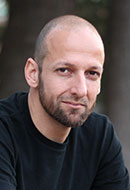 Dr. Khalid Kadir |
Presidio Graduate School and UC Berkeley |
Khalid is an Adjunct Professor at Presidio Graduate School as well as a Continuing Lecturer at UC Berkeley. At UC Berkeley, he teaches courses in the Global Poverty & Practice program, Political Economy, and Civil and Environmental Engineering. After completing his PhD in Environmental Engineering at Berkeley, Khalid focused his research on the complex role that engineering expertise plays in the politics of international development and poverty alleviation, and his current work focuses on the intersection of poverty, expertise, and politics. He is a recipient of the 2017 Distinguished Teaching Award, UC Berkeley’s most prestigious honor for teaching. Watch Kadir’s 2020 Burges Endowed Visiting Professor Lecture |
2020 |
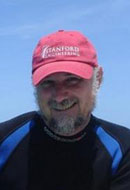 Professor Stephen Monismith |
Stanford University | Professor Monismith’s research spans a wide range of topics from small-scale physical-biological interactions in phytoplankton and benthic systems to coral reefs, stratified turbulence and estuarine hydrodynamics and mixing processes. During his visit to UW, Monismith presented two talks: a CEE Departmental lecture on "Salinity Intrusion in San Francisco Bay" and a Physical Oceanography seminar in the School of Oceanography on "Drag over Living Roughness." He also met with faculty and students from CEE, Oceanography and Mechanical Engineering. | 2019 |
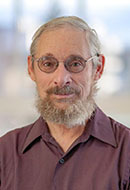 Professor Matthew Sturm |
University of Alaska Fairbanks | One of the leading Arctic snow scientists in the world, Professor Sturm has led more than 15 Arctic winter expeditions, authored numerous books and has served on numerous high-profile national councils to guide Arctic research and development. During his visit to UW CEE, he presented two public lectures and met with students to provide feedback on research projects. | 2019 |
| Professor Jorge Huete-Perez |
University of Central America, Nicaragua | 2016 | |
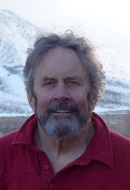 Professor Jeffrey Dozier |
University of California, Santa Barbara | Professor Dozier’s research interests are in the fields of snow hydrology, Earth system science, remote sensing, and information systems. While at UW, Dozier led a short-course for graduate students on snow and remote sensing, gave several public lectures (attended by students and professors in CEE, ESS, CSE and SEFS), and worked on research collaboration with faculty, leading to a publication that appeared in Remote Sensing of the Environment in 2019. | 2016 |
 Professor Massimiliano Fabbricino |
University of Naples Federico II, Italy | Professor Fabbricino’s research interests include anaerobic treatment of solid waste, resource recovery, remediation of contaminated soils, formation of disinfection by-products, environmental chemistry of heavy metals and others. During his time at UW, Fabbricino participated in research on the effects of desalinated water on the stability of drinking water distribution systems. He also contributed to research concerned with the characterization of the reactivity of natural organic matter formed in major fluvial systems, such as the Rio Negro basin in South America. | 2012-2013 |
| Yildiz Technical University |
Dr. Pelin Ozener is a Professor in the Civil Engineering Department of Yildiz Technical University in Istanbul-Turkiye. She received her M.Sc. and Ph.D degrees on Geotechnical Engineering from Yildiz Technical University in 2001 and 2007, respectively. Through the TUBITAK fellowship award, she has worked as a visiting researcher at the University of Washington on “The Use of Evolutionary Measures of Ground Motion Intensity to Predict Liquefaction with Prof. Steven Kramer. Her research and professional interests are mainly related to Geotechnical Earthquake Engineering focusing on liquefaction, its remediation methods, site response and dynamic behavior of soils. She is a member of ISSMGE, Turkish National Committee on Earthquake Engineering, Turkish National Committee on Soil Mechanics and Geotechnical Engineering. |
2011-2012 | |
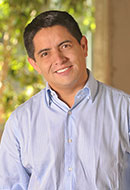 Assistant professor Christian Ledezma |
Pontificia Universidad Catolica de Chile, Chile | Professor Ledezma’s research focuses on the areas of geotechnical earthquake engineering, soil-structure interaction, effects of liquefaction on the built environment, and applications of performance-based design to geotechnical engineering. Through a Fulbright NEXUS fellowship, together with an assistant professor appointment at UW, he collaborated with faculty on research activities related to effects of lateral spreading on bridge foundations. | 2011-2012 |
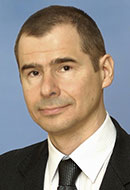 Associate professor Jacek Makinia |
Gdańsk University of Technology, Poland | Currently the head of the Sanitary Engineering Department at Gdańsk University of Technology, professor Makinia’s research interests are nutrient removal and recovery, mathematical modeling and simulations of wastewater treatment processes, and energy optimization of wastewater treatment processes. While at UW, he worked with faculty and graduate students to model both the fate and removal of important endocrine disruptor chemicals and the fate and conversion of nitrogen in wastewater treatment. Three publications resulted from the collaboration. | 2010 |
